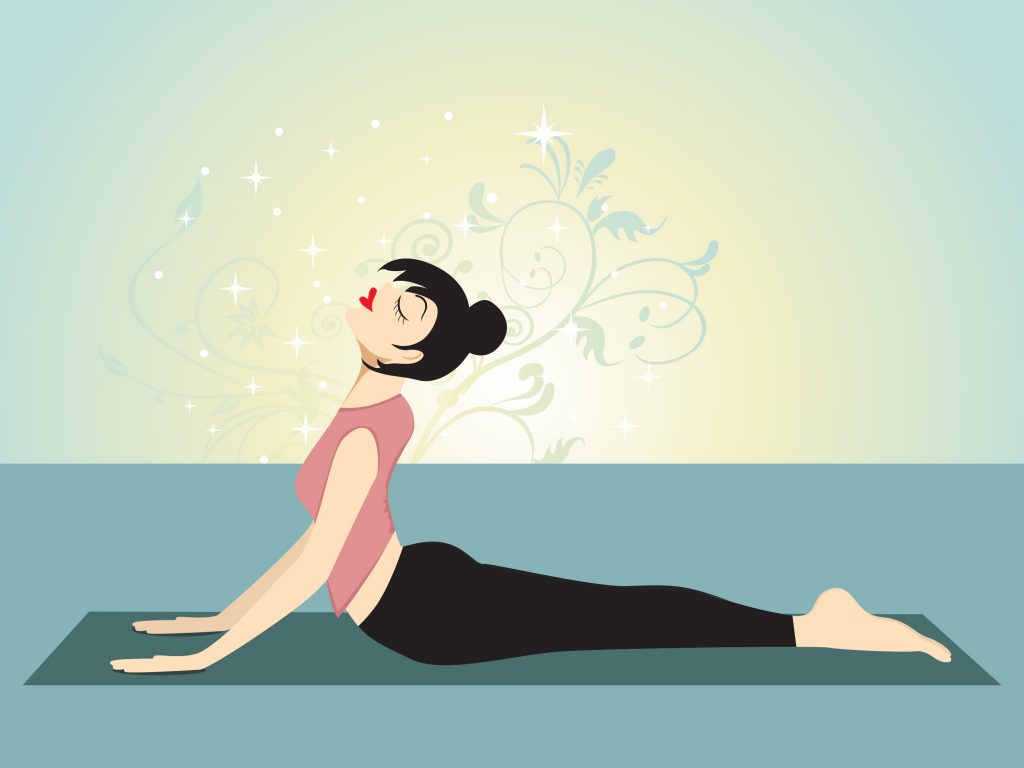The Brain-Gut Connection
Do you struggle with IBS? If so, you likely know the feeling of being thrust into an unexpectedly stressful situation only to feel your stomach tighten, the cramps start, and you know it’s going to lead to an unpleasant episode.
Or, maybe your IBS is out of control for a period of time, getting in the way of your work and life, leaving you stressed and under undue pressure.
Without a doubt, stress and IBS are inextricably connected. What’s important to remember is that by getting your stress under control with relaxation techniques and exercises such as yoga, you could potentially turn your stomach issues around!
You’ve been to the doctor and you’ve had all of the tests. The diagnosis you’ve been given is irritable bowel syndrome or IBS… now what?
Your doctor or other health care provider may have suggested that your IBS is “stress-related.” In no way does this mean that your symptoms are “all in your head.” Rather, your doctor is referring to the ways in which the brain and digestive system communicate and interact with each other, commonly referred to as the “brain-gut connection.” In response to either a significant physical (e.g., bowel infection) or a psychological stressor (e.g., change of job, change in role in life), a disturbance in these complex interactions often can lead to the first onset of symptoms or aggravate symptoms you are already having.
Given that IBS is a disorder of brain-gut and mind-body interactions, many individuals find symptom relief and an improved sense of well-being when they incorporate simple relaxation techniques into their daily lives. Although stress is inevitable, if not managed well, it can become detrimental to one’s physical and emotional health. Thus, a regular practice of deep relaxation is associated with several health benefits including:
- a reduction of generalized anxiety,
- increased energy levels and productivity,
- improved concentration and memory,
- improved sleep,
- decreased fatigue,
- increased sense of self-confidence, and
- reduced muscle tension.
Whether you have five minutes or one hour to spare, regular use of the relaxation exercises discussed here will help you to feel more in control of your symptoms, while also promoting positive self-care. It is best to practice on a daily basis and, if possible, at the same time each day. Most people prefer to do the exercises either just upon awakening or prior to bedtime.
– via www.aboutibs.org
Yoga For IBS
The above excerpt discusses relaxation techniques such as positive visualization or abdominal breathing. But there’s more to relaxation and stress reduction than just these exercises. One of the best additions you can make to your life to get your IBS under control and start feeling better quickly is yoga. This is a great breakdown of why yoga is so powerful for your digestive system.
Stress is one of the most common triggers of IBS symptoms. Yoga can help you shut down stress by calming the nervous system—and, in the process, calm your irritated digestive system. For the best results, choose postures that are accessible, not overly ambitious. You don’t want to struggle to squeeze your body into postures that are more painful than peaceful. Make steady, smooth breathing the focus of your practice; if your breathing is strained, it will reinforce your stress and symptoms. Finally, be sure to include a relaxation pose at the end of your practice, and even consider starting your practice with relaxation. This can send a clear signal to your body and mind that it is time to slow down, let go, and shift toward a healing state.
Yoga can also help you tolerate uncomfortable sensations. If you have IBS, you have probably learned to recognize the first signs of an episode. You may be vigilant for any change in sensation in your belly and gut—the pressure of bloating or the first twinge of cramping that warns you things might quickly get worse. Unfortunately, anxiety about gut feelings can actually intensify your symptoms. But if you breathe and stay with the sensation, your body learns to relax, even with intense feelings. You can learn to be with your symptoms in the same accepting mindful way that you stay with the sensations of a yoga pose. This can profoundly change your experience of the pain and keep a mild episode from becoming severe.
Yoga can relieve your IBS symptoms by reducing stress and teaching you how to listen to your body.
Yoga can even help you prevent episodes altogether by making you aware of what makes your symptoms worse. From specific foods to caffeine, alcohol, or sleep deprivation, every IBS sufferer has triggers they can learn to avoid. Yoga is a perfect training ground for cultivating a heightened awareness of cause and effect in your body that carries over to choices off the yoga mat. With time, you will find yourself having stronger insights into what is healing, and what is harmful, to your body. You will find yourself wanting to do what is good for your body, and less attracted to what makes your symptoms worse.
A well-sequenced yoga practice will send gentle pulses of compression and stretch to sensory receptors along the digestive tract, soothing your IBS.
Finally, yoga may help restore normal motility of the gut. When you have IBS, the contractions of your intestines may be slowed to the point of constipation or spasming to the point of diarrhea. Some yoga poses, like seated twists or prone backbends, put gentle pressure on the abdominal organs. Others, like side bends and reclining twists, release tension around the abdomen. A well-sequenced yoga practice will send gentle pulses of compression and stretch to sensory receptors along the digestive tract. This combination of pressure and release is believed to help balance the contractions of the gut, whether getting things moving or slowing things down.
– via yogainternational.com
What techniques have worked best to calm or control your IBS?